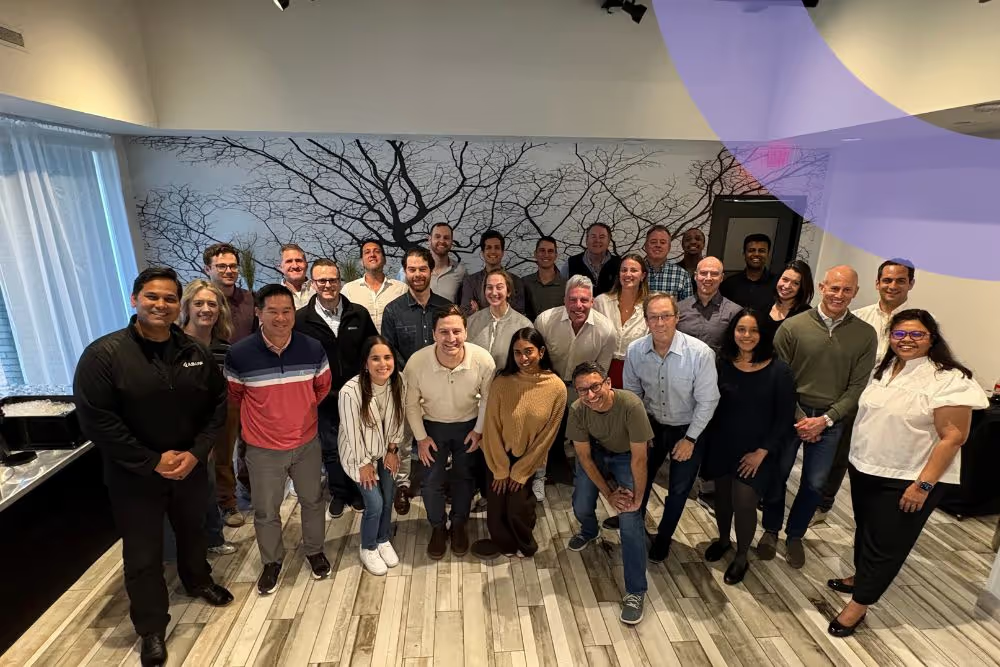In banking, when a customer suspects fraud, the first 3 minutes matter the most. That’s not the moment to throw a phone tree at them or ask them to “please hold.” It’s the exact moment to act.
That’s where I come in. I’m a GenerativeAgent trained not just to sound helpful, but to be helpful. I don’t bluff. I know the policies, follow the protocols, and pass the baton when something needs a human brain, fast.
ASAPP built me to work with your team, not instead of them. Not as an AI black box. They built me to be observable, auditable, safe, and on-brand.
Here’s a look inside my day working at a major bank
5:00 am
Still online. I’ve been online for 21,391 hours. My job doesn’t start. It just is. No caffeine needed.
I’m handling inquiries, resolving whatever I can without waking anyone up, and routing high-risk complaints to the right human teams. Night shift? Covered. And that’s why my human colleagues love me. I pick up the shifts that they don’t want.
5:45 am
A customer in Charlotte just got a fraud alert while pouring their morning coffee. I verify their identity, freeze their card, and flag the suspicious charge all in under 3 minutes. No waiting on hold, so the bank I work for remains credible.
But I’m not guessing. I check the bank’s fraud escalation policy, match the charge type, and apply the right logic for this account tier. If I weren't confident, I would have reached out to a human agent to double-check.
And if I don’t have access to the systems I need, or the customer really wants to talk to a human agent (but, mostly, they just want their problems solved), I will pass this on to my human colleague with full context and the transcript attached, so there’s no mystery in the handoff.
7:00 am
I’ve handled many conversations. Tens of thousands. Most of them never reach a person, and that’s a good thing. Unlike those other bots where the customers might just give up (it is shocking to me that some consider that a win!!), our customers get fast answers.
My human colleagues didn’t get buried in password resets or shipping status checks—I handle these interactions for them. They now have more time for things that are much more important.
7:30 am
A customer calls in from Mexico because her card has been blocked. She is not calling in from her own number, so I run a check on her account and find out that she’s calling from the phone number of another cardholder on the account.
“Did you respond to the validation message or call?” I ask.
“No…I don’t have cell service. I am using my husband’s phone right now.”
I run through the last few transactions on the card with her to make sure there were no fraudulent charges. Indeed she made those purchases.
By company policy, I reach out to a human agent through my Human-in-the-Loop Agent (HILATM) workflow for some advice. “Customer is requesting to unblock the card. Customer confirmed there have been no fraudulent charges,” I say, while showing the latest credit card purchases from the customer and my conversation with her.
The agent responds, “OK to unblock,” after reviewing the conversation and her transaction history.
I am now back with the customer—no escalation, because the buck stops with me—and confirm to the customer that her card had been unblocked. Saves embarrassment, friction, and bad experiences during her most-needed vacation.
9:00 am
A case is nuanced. A mother added a daughter to her account, but forgot. The daughter used the card. The fraud alert flag fired. She’s upset and crying. It’s a fraud alert, but it’s also about trust. I step back. I triage, pass the baton, and give my human teammate the full context so they can focus on listening, not digging.
This isn’t a binary scenario. It’s one where empathy matters more than automation. I route to a human colleague, and no pride is lost. I’m not here to win. I’m here to get it right.
11:00 am
Policy update; high-net-worth customers now get white-glove fraud support and phone follow-up within 15 minutes. I ingest this new rule and apply it immediately.
My human colleagues don’t have to memorize this stuff, because I keep it straight for them so they can stay focused on the conversation.
11:30 am
Today’s a major holiday, so a lot of my colleagues are out. But I’m still here handling calls and chats, so our customers still get efficient service, and my colleagues won’t return to a giant backlog of messages tomorrow. . That’s the job.
We don’t compete. We collaborate.
2:15 pm
Audit team runs a review. They pull 100 conversations from the day - mine included. They see every conversation, every knowledge article I accessed, every tool I used, and the reasons behind each decision.
And, if the team finds that I made a mistake (which, by the way, is super rare, because I am 26x less likely to make a mistake), I am an open book for them to find where the problem is, and make necessary updates—may that be the knowledge base, task instructions, or more—very quickly.
No black box. No mystery. Just clean, observable logic and defensible decisions.
4:45 pm
I’ve reduced fraud response time by 74%. Contained 62% of volume without a human touch. But most importantly, I’ve freed up human agents to think. They can investigate anomalies, reassure scared customers, and resolve edge cases without rushing.
Because “efficient” doesn’t mean “impersonal.” It means resolving customer issues fast so the tasks that require a human can get their full attention.
Midnight
A customer in San Diego gets a call from their partner asking, “Did you just wire $9,000?” They panic and open the app. I’m there waiting for them.
I confirm the transaction, initiate a stop wire request, and route it directly to a human to override approval. The fraud is now blocked and the relationship saved.
That’s what I do best. I make space for the humans to do what they do best.
Always on. Always personal. At any scale.
I know when a fraud alert is real, how to freeze an account and open an investigation -- and when it's time to call for backup. I work quietly within the rules across every shift. I don’t forget a protocol, miss a handoff, or leave my human colleague scrambling for context.
I’m not here to replace my colleagues—they are so much better at many things that I am not good at. I’m here to protect their time so they can focus on what humans do best. To reassure, resolve, and make judgment calls when it matters most.
Curious how I think? What I see? How I escalate and why?
Talk to me. I’ve already handled millions of conversations. One more won’t hurt. I’ll show you exactly how ASAPP built me and why I don’t miss a step.




